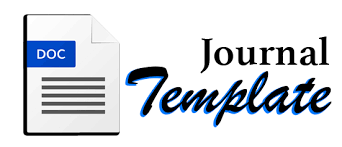PENGABDIAN MASYARAKAT BERBASIS MODERASI BERAGAMA: STUDI IMPLEMENTASI KKN NUSANTARA IAIN PONOROGO TAHUN 2021 DI DAERAH 3 T, KONAWE, SULAWESI TENGGARA
DOI:
https://doi.org/10.21154/inej.v2i2.3762Keywords:
Pengabdian, Moderasi Beragama, KKN, Daerah 3T, KeberagamaanAbstract
Artikel ini fokus mendiskusikan tentang bagaimana implementasi nilai-nilai moderasi ditanamkan melalui kegiatan akademik di ranah perguruan tinggi melalui kegiatan KKN. Studi ini bertujuan untuk menunjukkan bahwa negara, selain menjadikan isu moderasi beragama sebagai arus utama dalam membangun karakteristik keberagaman, juga melakukan terobosan demi optimalisasinya. Penelitian deskriptif ini didominasi oleh data field research yaitu wawancara dengan peserta KKN Nusantara Moderasi Beragama yang berhasil melakukan kegiatan pengabdian masyarakat di Mulyasari, Mowila, Kabupaten Konawe Selatan, Sulawesi Tenggara, juga diperkaya oleh data skunder berbentuk studi literatur. Hasil menunjukkan bahwa KKN Nusantara berbasis Moderasi Beragama yang dilakukan oleh peserta merupakan terobosan penyemaian nilai-nilai moderasi yang saat ini menjadi salah satu isu aktual di level Kementerian Agama di tengah maraknya isu intoleransi dan disintegrasi antar agama. Instrumen KKN sebagai media desseminasi nilai-nilai moderasi beragama memberi ruang baru bagi mahasiswa dalam memahami dinamika keberagamaan yang rawan dengan isu-isu intoleransi dewasa ini.
References
Kemenag RI. “Pedoman Moderasi.” Accessed January 19, 2022. https://balitbangdiklat.kemenag.go.id/upload/files/Buku_Saku_Moderasi_Beragama-min.pdf.
"Kuliah Kerja Nyata - Wikipedia bahasa Indonesia, ensiklopedia bebas" https://id.m.wikipedia.org/wiki/Kuliah_Kerja_Nyata
“Yudi Latif: Pancasila sebagai Titik Temu Beragam Ideologi, Agama, dan Identitas ”“ Lifestyle Liputan6.com” https://m.liputan6.com/lifestyle/read/4580414/yudi-latif-pancasila-sebagai-titik-temu-beragam-ideologi-agama-dan-identitas?
Abdul Halim, Islam Lokalitas Dan Kebhinekaan, 2020.
Himawati, Nopianti, and Widiyarti, “Optimalisasi Peran Mahasiswa Melalui Kuliah Kerja Nyata Mandiri Sebagai Upaya Mendukung Pencegahan Penularan Covid-19 Pada Masyarakat.”
https://www.voaindonesia.com/amp/haedar-nashir-moderasi-beragama-bukan-deradikalisasi/5203018.html
Ika Pasca Himawati, Heni Nopianti, and Diyas Widiyarti, “Optimalisasi Peran Mahasiswa Melalui Kuliah Kerja Nyata Mandiri Sebagai Upaya Mendukung Pencegahan Penularan Covid-19 Pada Masyarakat,” Unri Conference Series: Community Engagement 2 (2020): 379”“85, https://doi.org/10.31258/unricsce.2.379-385.
Nur Cahaya et al., “PENGARUH PELAKSANAAN KULIAH KERJA NYATA (KKN) DARING DAN TERUKUR 71 UINSU 2021 BERBASIS MODERASI BERAGAMA DALAM MEMBANGUN DESA (Studi Kasus Desa Birong Ulu Manriah, Kecamatan Sidamanik, Kabupaten Simalungun),” JURNAL MARITIM 3, no. 1 (2021): 55”“61.
Rusi Rusmiati Aliyyah, R S T Pupu Fauziah, and Nur Asiyah, “PENINGKATAN CINTA LINGKUNGAN DAN PEMBERDAYAAN MASYARAKAT PEDESAAN MELALUI PROGRAM PENGABDIAN MASYARAKAT,” QARDHUL HASAN: MEDIA PENGABDIAN KEPADA MASYARAKAT 3, no. 1 (2018): 46, https://doi.org/10.30997/qh.v3i1.999.
Sarfika Datumula, “PERATURAN KEBIJAKAN PENDIDIKAN DI INDONESIA PADA MASA ORDE LAMA, ORDE BARU, REFORMASI, DAN KABINET KERJA,” Moderasi: Jurnal Studi Ilmu Pengetahuan Sosial 1, no. 2 (2021): 56”“78, https://doi.org/10.24239/moderasi.vol1.iss2.27.
Sirajuddin Sirajuddin, “Buku Literasi Moderasi Beragama Di Indonesia” (Penerbit. Zigie Utama, 2020).
Sri Widaningsih et al., “MODEL APLIKASI UML DALAM PELAKSANAAN KULIAH KERJA NYATA (KKN),” Dharma Bhakti Ekuitas 5, no. 2 (2021): 506”“10, https://doi.org/10.52250/p3m.v5i2.327.
Sumarto Sumarto, “IMPLEMENTASI PROGRAM MODERASI BERAGAMA KEMENTERIAN AGAMA RI,” Jurnal Pendidikan Guru 3, no. 1 (2021), https://doi.org/10.47783/jurpendigu.v3i1.294.
Suwartono, “Dasar-Dasar Metodologi Penelitian,” Dasar-Dasar Metodologi Penelitian, 2010, 45”“53.
Syardiansah Syardiansah, “PERANAN KULIAH KERJA NYATA SEBAGAI BAGIAN DARI PENGEMBANGAN KOMPETENSI MAHASISWA,” JIM UPB (Jurnal Ilmiah Manajemen Universitas Putera Batam) 7, no. 1 (2019): 57”“68, https://doi.org/10.33884/jimupb.v7i1.915.
Y R Dini, “Generasi Penerus Di Bumi Pasilian,” Repository.Uinjkt.Ac.Id, n.d.
Downloads
Published
Issue
Section
License
Please find the rights and licenses in InEJ. By submitting the article/manuscript of the article, the author(s) agree with this policy. No specific document sign-off is required.1. License
The non-commercial use of the article will be governed by the Creative Commons Attribution license as currently displayed on Creative Commons Attribution-NonCommercial-ShareAlike 4.0 International License.
2. Author(s)' Warranties
The author warrants that the article is original, written by stated author(s), has not been published before, contains no unlawful statements, does not infringe the rights of others, is subject to copyright that is vested exclusively in the author and free of any third party rights, and that any necessary written permissions to quote from other sources have been obtained by the author(s).
3. User/Public Rights
The spirit of InEJ is to disseminate articles published are as free as possible. Under the Creative Commons license, InEJ permits users to copy, distribute, display, and perform the work for non-commercial purposes only. Users will also need to attribute authors and InEJ on distributing works in the journal and other media of publications. Unless otherwise stated, the authors are public entities as soon as their articles got published.
4. Rights of Authors
Authors retain all their rights to the published works, such as (but not limited to) the following rights;
Copyright and other proprietary rights relating to the article, such as patent rights,
The right to use the substance of the article in own future works, including lectures and books,
The right to reproduce the article for own purposes,
The right to self-archive the article,
The right to enter into separate, additional contractual arrangements for the non-exclusive distribution of the article's published version (e.g., post it to an institutional repository or publish it in a book), with an acknowledgment of its initial publication in this journal (InEJ: Indonesian Engagement Journal).
5. Co-Authorship
If the article was jointly prepared by more than one author, any authors submitting the manuscript warrants that he/she has been authorized by all co-authors to be agreed on this copyright and license notice (agreement) on their behalf, and agrees to inform his/her co-authors of the terms of this policy. InEJ will not be held liable for anything that may arise due to the author(s) internal dispute. InEJ will only communicate with the corresponding author.
6. Royalties
Being an open accessed journal and disseminating articles for free under the Creative Commons license term mentioned, author(s) aware that InEJ entitles the author(s) to no royalties or other fees.
7. Miscellaneous
InEJ will publish the article (or have it published) in the journal if the article’s editorial process is successfully completed. The editors of Journal may modify the article to a style of punctuation, spelling, capitalization, referencing and usage that deems appropriate. The author acknowledges that the article may be published so that it will be publicly accessible and such access will be free of charge for the readers as mentioned in point 3.




